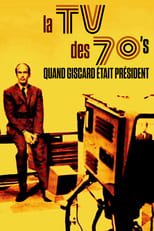

Marcia Barrett
Born: October 14, 1948
in Saint Catherine Parish, Jamaica
in Saint Catherine Parish, Jamaica
Marcia Barrett (born 14 October 1948) is a Jamaican-British singer and one of the original singers with the vocal group Boney M.
Barrett was born in Saint Catherine Parish, British Jamaica; her parents brought her to Croydon, England in 1963. In the late 1960s she moved to Germany, where she joined a band and toured with Karel Gott and Rex Gildo. In 1971 she signed to Metronome Records and made her first record, "Could Be Love", written by Drafi Deutscher. At the same time she kept touring with such songs as "Son of a Preacher Man", "Oh Happy Day" and "Big Spender".
In 1975 she joined Boney M., a group of models and dancers, to make discothèque and television performances of "Baby Do You Wanna Bump", a song recorded by record producer Frank Farian. The single was sold in the Benelux countries. When singer Claudja Barry left in early 1976, Barrett suggested a fellow Jamaican, Liz Mitchell, as replacement. Mitchell was a singer, and Farian engaged her and Barrett to make a follow-up recording, "Daddy Cool". They recorded Boney M.'s first album, Take the Heat Off Me, in 1976. After an appearance on the German television programme Musikladen in September, the group was in the charts all over Europe, and a series of hit singles and albums followed over the next decade. Boney M. counted four official members, but only Barrett and Mitchell were in the recording studio when Boney M.'s records were recorded. Frank Farian (and, from 1982–85, Reggie Tsiboe) provided male vocals that dancer and live on tour singer Bobby Farrell mimed on tv.
While Mitchell was regarded as the lead singer, owing to her larger number of songs on which she performed lead vocals, Barrett contributed harmony on many the group's well-known songs and shared the lead with Mitchell on hits such as "Daddy Cool", "Ma Baker", "Rasputin" and "Gotta Go Home". She also led on a couple of tracks on each of the group's studio albums up to Christmas Album (1981), including the title of the first album Take the Heat off Me and "Lovin' or Leavin'". These were released as a Barrett solo single in 1977. She sang lead vocal on "Belfast", a song she had performed live in her solo years, which became the second single from the second album Love for Sale; it was a German no. 1 and a European Top 10 hit. On that album she also performed "Silent Lover".
On Nightflight to Venus, Barrett sang "Nightflight To Venus" and a cover of "King of the Road" as well as the original "Never Change Lovers in the Middle of the Night" which became a standard during the group's performances. She sang the a capella intros of Boney M.'s 1978 Christmas hit, "Mary's Boy Child/Oh My Lord", and "Ribbons of Blue", was lead singer of "No Time to Lose" on the group's 1979 album Oceans of Fantasy and had a solo on the opening track "Let It All Be Music". ...
Source: Article "Marcia Barrett" from Wikipedia in English, licensed under CC-BY-SA 3.0.
Barrett was born in Saint Catherine Parish, British Jamaica; her parents brought her to Croydon, England in 1963. In the late 1960s she moved to Germany, where she joined a band and toured with Karel Gott and Rex Gildo. In 1971 she signed to Metronome Records and made her first record, "Could Be Love", written by Drafi Deutscher. At the same time she kept touring with such songs as "Son of a Preacher Man", "Oh Happy Day" and "Big Spender".
In 1975 she joined Boney M., a group of models and dancers, to make discothèque and television performances of "Baby Do You Wanna Bump", a song recorded by record producer Frank Farian. The single was sold in the Benelux countries. When singer Claudja Barry left in early 1976, Barrett suggested a fellow Jamaican, Liz Mitchell, as replacement. Mitchell was a singer, and Farian engaged her and Barrett to make a follow-up recording, "Daddy Cool". They recorded Boney M.'s first album, Take the Heat Off Me, in 1976. After an appearance on the German television programme Musikladen in September, the group was in the charts all over Europe, and a series of hit singles and albums followed over the next decade. Boney M. counted four official members, but only Barrett and Mitchell were in the recording studio when Boney M.'s records were recorded. Frank Farian (and, from 1982–85, Reggie Tsiboe) provided male vocals that dancer and live on tour singer Bobby Farrell mimed on tv.
While Mitchell was regarded as the lead singer, owing to her larger number of songs on which she performed lead vocals, Barrett contributed harmony on many the group's well-known songs and shared the lead with Mitchell on hits such as "Daddy Cool", "Ma Baker", "Rasputin" and "Gotta Go Home". She also led on a couple of tracks on each of the group's studio albums up to Christmas Album (1981), including the title of the first album Take the Heat off Me and "Lovin' or Leavin'". These were released as a Barrett solo single in 1977. She sang lead vocal on "Belfast", a song she had performed live in her solo years, which became the second single from the second album Love for Sale; it was a German no. 1 and a European Top 10 hit. On that album she also performed "Silent Lover".
On Nightflight to Venus, Barrett sang "Nightflight To Venus" and a cover of "King of the Road" as well as the original "Never Change Lovers in the Middle of the Night" which became a standard during the group's performances. She sang the a capella intros of Boney M.'s 1978 Christmas hit, "Mary's Boy Child/Oh My Lord", and "Ribbons of Blue", was lead singer of "No Time to Lose" on the group's 1979 album Oceans of Fantasy and had a solo on the opening track "Let It All Be Music". ...
Source: Article "Marcia Barrett" from Wikipedia in English, licensed under CC-BY-SA 3.0.
Movies for Marcia Barrett...

Title: Sheila, toutes ces vies-là
Character: Self (archive footage)
Released: December 24, 2022
Type: Movie
The portrait of a woman who remembers. Sheila tells the story of Sheila, without concessions or evasions. Her childhood, her parents, her beginnings, the rumors, her love affairs, her marriage, her son, her successes, her farewells, her return, her mourning. The journey of an extraordinary popular icon who never stopped fighting. The courage of an artist who never gives up. "Sheila, toutes ces vies-là" is also a journey through time. 60 years of pop music, punctuated by numerous archives, personal films, timeless hits and illustrations by Marc-Antoine Coulon. But also 60 years of fashion, through a legendary wardrobe (her TV show outfits) that Sheila invites us to rediscover.


Title: La TV des 70's : Quand Giscard était président
Character: Self (archive footage)
Released: January 7, 2022
Type: Movie
In May 1974, Valéry Giscard d'Estaing became President of the Republic and wanted to bring about a new era of modernity. One of his first decisions was to break up the ORTF with the creation of three new television channels: TF1, Antenne 2 and FR3. Three new public channels but autonomous and competing. It is a race for the audience which is engaged then, and from now on the channels will make the war! This competition will give birth to a real golden age for television programs, with variety shows in the forefront. The stars of the song are going to invade the living rooms of the French for their biggest pleasure. This unedited documentary tells the story of the metamorphosis of this television of the early 1970s, between freedom of tone, scandals, political intrigues and programs that have become mythical.




Title: Boney M: The Greatest Hits
Character: Self
Released: November 26, 2001
Type: Movie
Compilation demonstrating the sequined glamour and diaphanous disco genius that was Boney M. Features 'Rivers of Babylon' and 'Rasputin'.




Title: Boney M. on the Road - Jamaica 1981
Character: Self - Boney M.
Released: December 12, 1981
Type: Movie




Title: Disco Fieber
Character: Self
Released: March 15, 1979
Type: Movie
The adventures of a group of over-sexed high school students.


Title: Numéro un
Character: Self - Boney M.
Released: April 5, 1975
Type: TV
A French variety show.


Title: Les Rendez-vous du dimanche
Character: Self - Boney M.
Released: January 12, 1975
Type: TV
A talk show presented by Michel Drucker


Title: Midi Première
Character: Self - Boney M.
Released: January 6, 1975
Type: TV
Midi Première is a French variety show presented by Danièle Gilbert, directed by Jacques Pierre and broadcast from January 6, 1975 until January 1, 1982 on TF1. The program was generally broadcast between 12:15 p.m. and 12:55 p.m., then giving way to the 1:00 p.m. TV news. However, the broadcast schedule could change, depending on the guests, and the setting where the recording of the program was shot. Certain performances by artists who have become cult like the one where Ringo jostles with a demonstrator in interpretation (1977), that of Dalida with the title There is always a song with the soundtrack that does not start, twice, at the right speed (1978), Claude François and his Clodettes, who, in the provinces, are unable to join "the set" in order to interpret his song, the latter being taken by the crowd of delirious fans (summer 1977) . The group Supertramp performed there with the title "Dreamer" on March 8, 1975.
